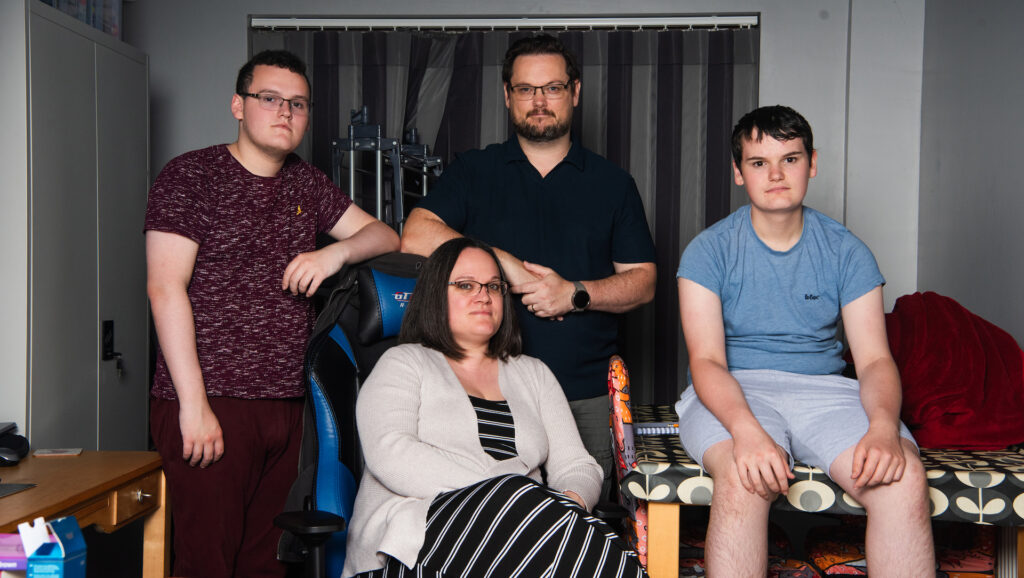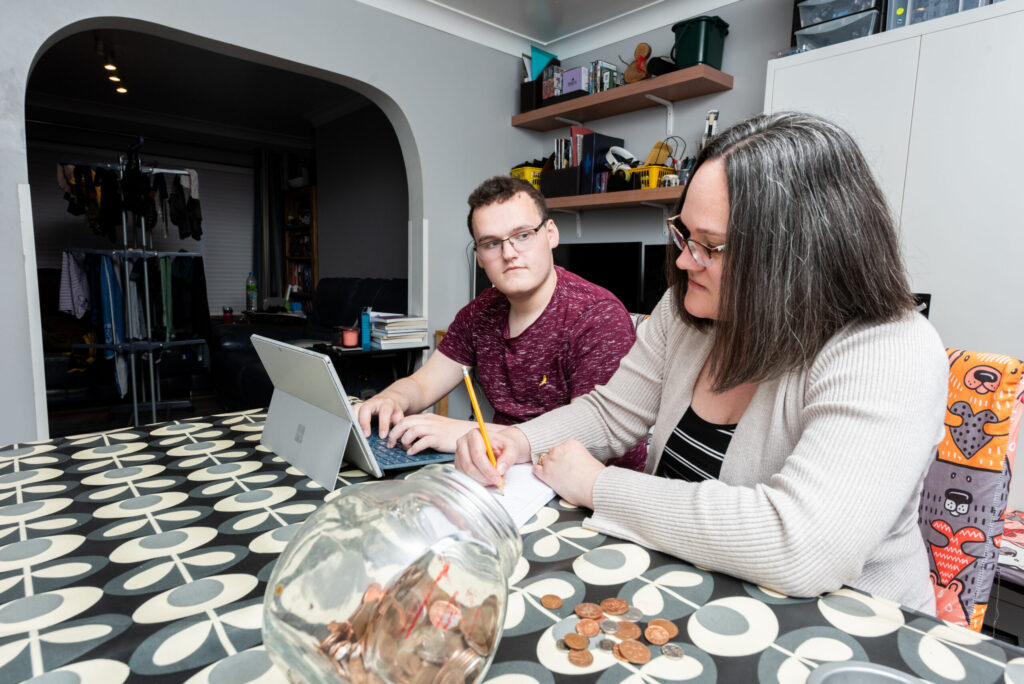One in two disabled people to use ‘Warm Spaces’ this winter in desperate bid to save on energy bills
- Disabled people forced to take drastic measures, like turning off the heating, to cope with financial pressures.
- Disability charity Sense urgently calls for a social tariff on energy to help people through the winter.

1 November 2023 – One in two disabled people plan to spend the coming months in community spaces to stay warm, because they can’t afford energy bills at home.
That’s according to new research* by the disability charity Sense, that reveals the huge pressure on disabled people as we approach the second winter since energy bills began to skyrocket, with more than half (53 per cent) in debt because of the rising cost of living and two thirds (66 per cent) constantly worrying about bills.
Sense’s research focuses on the experiences of people living with complex disabilities and how they are coping with the ongoing cost-of-living crisis. There are 1.6 million people with complex disabilities in the UK, who live with two or more disabilities, and may require high levels of support.
Disabled people, who often earn less and face higher living costs, have been disproportionately impacted by the current crisis and are continuing to face extreme hardship. They have to pay more for specialist diets and therapies, and then use more energy to run essential equipment, such as breathing machines and feeding pumps. Heating is especially important for those who are less mobile and struggle to regulate their own body temperature.
Now facing a second winter with very limited support, disabled people’s biggest concern is energy bills and the impact of having the heating on. Sense’s research reveals that seven in ten (70 per cent) disabled people are worried they won’t be able to keep their home adequately warm this winter **, with nearly six in ten (57 per cent) planning on turning the heating in their homes down or completely off to save money. One in two (51 per cent) will use ‘warm spaces’***, such as community centres, libraries and churches, to stay warm during the day.
Heating isn’t the only energy concern, with almost one in five households (18 per cent) saying that they are reducing their usage of specialist equipment such as electric wheelchairs, feeding pumps and ventilators.
Disabled people say their health is suffering as a result of the strain. More than a third (39 per cent) say their physical health has got worse, and six in ten (63 per cent) say their mental health has deteriorated.
While there are cost of living payments for people on benefits this year, Sense’s research shows they aren’t nearly enough to combat high energy bills – two in five (44 per cent) believe they haven’t received enough support from the government on energy costs, and the charity wants to see more financial support available.
Earlier this year, the government said that it would consider the introduction of a discounted energy tariff**** that would protect disabled households struggling with their energy bills. Sense, who has been inundated with requests for information and support from disabled people and their families*****, is urgently calling for the government to look again at the social energy tariff ahead of the autumn budget.
Richard Kramer, Chief Executive of Sense, said:
“We are in the middle of the worst cost-of-living crisis in decades, and disabled people are being hit the hardest. Energy bills are so high that people are being forced to switch off their heating to save money, or even leave their homes to find a warm space in the community – it’s a desperate situation.
“The government cannot sit back and watch for a second winter, as more disabled people are forced into debt and ill-health. We are urging the government to recognise the full impact of rising costs on disabled people and bring in a social energy tariff which would help millions struggling across the country.”
ENDS
Case study: ‘I’m trying not to panic, but we are not managing’

Nurse Laura Smith, 38, lives with husband Neil, a social worker, and two children in Rugby, Warwickshire. Both children – Alfie, 13, and Leon, 15 – have autism.
Laura has multiple sclerosis (MS), and spends a lot of time in hospital, which limits how many hours she can work and therefore how much money she can earn.
As the cost-of-living crisis has worsened, the family have struggled with bills and are dipping more and more into their overdraft. The family are saving money where they can, including Laura and Neil regularly having soup for meals because it’s less expensive.
Energy costs are the biggest worry, but Laura says the heating is a necessity as the cold can worsen her symptoms. However, the family are still cutting down on its use.
Laura said: “Having the heating on during the winter is a total non-negotiable for me. If I get too cold I can get ill. My symptoms get so bad that I can’t move and am at much higher risk of falling. But even given how important it is, we’re still having to be more frugal. We put the heating on at a different temperature now and will put blankets on instead.”
Laura says the bills are a constant cause of stress and is not hopeful for the future.
Laura said: “I’m trying not to panic, but we are not managing. I don’t know how this is going to resolve itself.”
Notes to editors
References
*The research was conducted by Censuswide, on behalf of Sense.
Most recently, 1,005 UK respondents with complex disabilities (18+) were surveyed between 2 October and 9 October 2023
Censuswide abide by and employ members of the Market Research Society which is based on the ESOMAR principles and are members of The British Polling Council.
** Sense, 2023, The Continuing Impact of Cost of Living, available at https://www.sense.org.uk/about-us/statistics/the-continuing-impact-of-cost-of-living-on-people-with-complex-disabilities/
Polling of 1,002 UK respondents with complex disabilities (18+) surveyed between 24 August to 31 August, 2023.
Censuswide abide by and employ members of the Market Research Society which is based on the ESOMAR principles and are members of The British Polling Council.
*** Councils and local community partners are promoting ‘warm spaces’ – free, non-judgmental spaces where people, who are struggling with their energy bills, can go to stay warm. These spaces include community centres, libraries and churches.
**** A social tariff for energy would provide discounted energy to disabled households who require higher energy use due to essential equipment such as electric wheelchairs or breathing machines. Social energy tariffs already exist in several countries, including Italy, France and Spain. 86 per cent of people said a discounted energy scheme would help them in Sense’s Continuing Impact of Cost of Living research, available at https://www.sense.org.uk/about-us/statistics/the-continuing-impact-of-cost-of-living-on-people-with-complex-disabilities/
***** The charity’s webpages on benefits and money are the most popular pages on its website and have been viewed more than 83,000 times in the past year.
Contact Sense’s media team
Email: [email protected]
Phone number: 0203 833 0611
